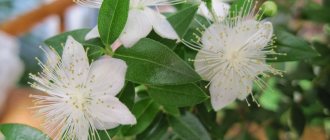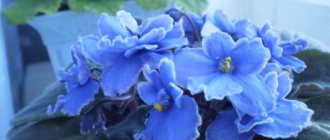- July 27, 2019
- Houseplants
- Ekaterina Komisarova
In apartments and offices you can often see small trees, the branches of which are covered with white fluffy leaves that exude a unique aroma. They are called "myrtle". These plants began to be grown in ancient times, but they have not lost their relevance today. This is due to its high decorative characteristics, unpretentiousness and ease of maintenance. In addition, the trees are great for creating bonsai-style compositions. Let's figure out how to grow myrtle at home and learn about all the key features of its content. Once you plant it in your home, you will understand why it is so popular.
general information
According to legends, myrtle (care at home does not take much time) grows in the Garden of Eden. Adam managed to take the twig with him when God cast him out for disobedience. He planted it in the Mediterranean, where, due to the favorable climate, the tree took root. There are also references to this culture in Greek mythology. The wreath of the goddess of beauty Aphrodite was made of myrtle. Therefore, it is a symbol of love and devotion. Nowadays, in some countries, the bride's bouquet necessarily contains a sprig of a fragrant plant.
In the wild, the greatest concentration of myrtle is observed in subtropical climates, which are characterized by warmth and high humidity. It is represented by shrubs and low trees, the maximum height of which is three meters. They can be found in South America, Asia and Africa.
The myrtle houseplant (growing and caring for it will not cause difficulties even for beginners) is widespread throughout the world. Its branches are covered with small, pointed leaves that are bright green in color. During the flowering period, white or pink buds appear, which grow singly or in groups. The shape and number of petals may vary. It all depends on the specific variety, of which there are quite a few today. After the flowering period ends, small berries appear in place of the buds. The leaves contain essential oils that not only emit a pleasant aroma, but also have beneficial health properties. They also purify the air, which improves a person’s overall well-being and reduces the risk of developing colds.
Trimming
A tree as round as a lollipop is not the original type of myrtle: this is how it is formed when pruned. If the bush is started, it will have a pyramidal crown shape with a thickened bottom.
An important point: the more often you prune, the less often the myrtle will bloom. So decide for yourself what will please the eye more: flowers or a green crown.
Pruning is done with pruning shears or garden shears. The best time of year for this procedure is spring.
- Watch the density of the plant: myrtle will not like pruning too often due to the weak trunk.
With rational pruning and the whole sum of favorable factors given in the article, myrtle can grow in a couple of years to the state of a beautiful lush tree, which can already be planted in a floor tub.
By the way, some plant growers go further and, using pruning, make dwarf bonsai varieties from myrtle. It turns out quite successfully! To do this, the trunk is pruned to achieve bushiness, and the plant itself is transplanted into a wide and flat pot, covering the soil with moss.
View this post on Instagram











